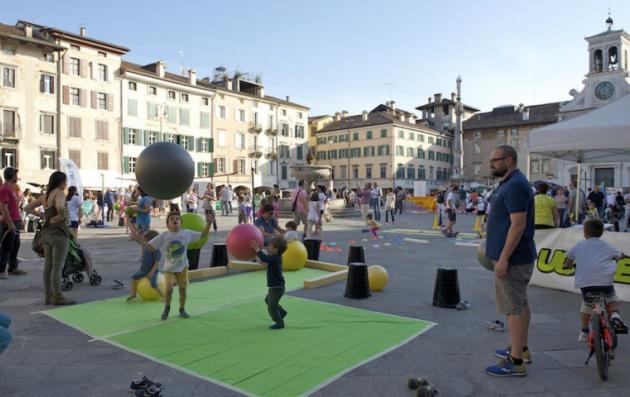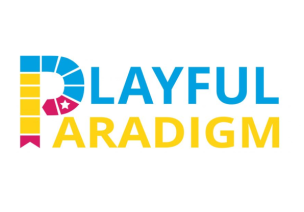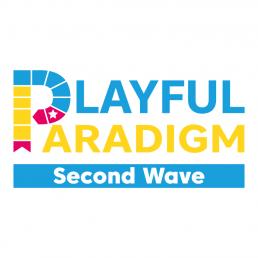Date of label : 02/06/2017
-
Udine , Italy
-
Size of city : 100.170 inhabitants
Previously transferred

Summary
The Municipality of Udine has developed an urban practice focusing on the use of play as a flexible, innovative place-making paradigm to Develop an equitable and democratic society. Play is used as a vehicle for addressing healthy lifestyles and energy awareness; it fosters the inclusion of migrants, the involvement of elderly people and promotes a better relationship between parents and children. Playful places such as the Municipal Toy Library and its public park, the Energy in Play annual fair, the Traveling Toy Bus, World Games Day and Pi Day, have contributed to the improvement of urban places in Udine and raised awareness of health, energy and sustainability issues.
The solutions offered by the good practice
The “Playful Paradigm” initiatives is part of a comprehensive strategy that the Municipality has been implementing for more than 20 years under the umbrella of the Healthy Cities Project (World Health Organization), the European Covenant of Mayors for Climate & Energy, while being the leading city of the Italian Playful Cities Movement (GIONA). From 2013 to 2015, Udine was the Lead Partner of the URBACT Healthy Ageing Project, tackling a topic, which particularly concerns its population (Udine has an old age index of 217), where playfulness has been an important aspect.
The solution proposed stems from using ‘games’ as a flexible and innovative co-creating place-making paradigm, in addressing the needs of an actively ageing, energy aware, equitable and democratic society.
Evidence shows that it is easier to learn and establish relations through playing, because cultural differences or physical and cognitive deficiencies, or mere unawareness, can be easily compensated by emotional reactions. The experience in Udine started with tiny temporary educational initiatives such as the Ludobus (a mobile toy library a project promoted nation wide in the early 2000s), which then has been permanently turned into a The toy library, an intergenerational meeting point in the city center. The toy Library has welcomed since 2013 by 40 000 visitors becoming the actual hub of q rich programme of play-related initiatives the city has launched e.g. CamminaMenti – Move your minds run in community centers for dementia prevention and inclusion of elderly people, the Energy in Play annual Fair, the World Games Day, Pi Day, Darwin Day, The library of living books, etc. Because of this experience in 2017 with the support of Regional Funds, Udine launched the Italian National Games Archive establishing the first Italian classification of traditional and modern games, relying also on crowd sourcing in the coming years. Most recently, Udine has launched a project to fight gambling by promoting a toolkit of “healthy” games replacing “slot-machines”, the latter more and more invading bars, pubs and restaurants hooking the population especially in deprived urban areas.
Overall, the municipality has adopted a light touch policy based on “playing” that crosses all departments and programmes giving a new twist to the concept of social inclusion, education and place making that is a novelty for many European cities.
Building on the sustainable and integrated approach
Health, energy and literacy awareness are pursued through playful initiatives aimed at developing a sustainable urban living, fostering learning attitudes, and enabling citizens regardless of age, ethnic origin, income, gender orientation or ability. The playful paradigm, which integrates top-down policies and spontaneous bottom-up actions called also “middle-out approach” in the Udine URBQCT good practice, triggers collateral initiatives akin to co-generative welfare. The holistic feature of games naturally induces an integrated and participative approach. This paradigm has allowed Udine to boost the many existing grass-root initiatives which promote sports, physical activity, healthy and eco-friendly lifestyles, channeling them towards the overall health and sustainability goals of the municipality and involving all citizens, not just militants.
The practice has thus achieved a vertical integration between different levels of government. Health and sustainability have become the 'lingua franca', i.e. the universal language, for carrying out city health and energy diplomacy, thus establishing relations and building partnerships with stakeholders within the city (non-profit organizations and public-private sectors), but also with other cities and regional and national authorities e.g. the creation of the National Games Archive, and the many transnational network Udine is involved in.
Based on a participatory approach
Over the years, Udine has implemented an integrated strategy for promoting physical, mental and relational well-being as well as ecological awareness in all policies. This approach has been applied by capitalizing on spontaneous bottom-up initiatives, building trustful alliances and partnerships within the community. In the Playful Paradigm approach, municipalities do not only act supportively of bottom-up suggestions and initiatives, but as catalysts of a broader societal engagement: the Municipality of Udine plays the role of social broker and mediator, facilitating networking among local stakeholders, and gently nudging their often idiosyncratic vision into a more coordinated, systematic and strategic framework. City health diplomacy plays a crucial role in this process, negotiating different interests towards a common goal, thus also avoiding the silo syndrome. The inter-sectoral participatory process is witnessed in Udine by the comprehensive programmes developed and co-created over the years, catalyzing and engaging a great number of different stakeholders. The whole-of-government, whole-of-society and health-in-all-policies approaches promoted by WHO within the Healthy Cities Movement was the inspiring principle.
What difference has it made?
Results have contributed to the improvement of urban places, and to awareness about health, energy and sustainability, with programmes and initiatives co-created using playing as the main paradigm. All these engage more than 3000 people per year.
Associations from the private and public sector are engaged to co-design and raise awareness on energy efficiency, reducing CO2 emissions through initiatives in the main squares of the city. A wide range of offers is at hand for everyone in community centers, Move your minds (CamminaMenti), university, public library, municipal Toy Library.
Non-profit and for-profit organizations offer music therapy, laughter yoga, anti-ageing games and creative thinking for combating cognitive decline and solitude. World Games Day: over 50 associations, small enterprises revolving around playing in all its different facets. Pi Day begins a little before 16.00 hrs on March 14 and brings together associations, individuals, schools to foster mathematics and scientific literacy. "You don't stop laughing because you grow old, you grow old because you stop laughing": workshops for health/social professionals improve the quality of life of elderly people. Energy at school, healthy eating, and food waste programmes: school programmes for educating children on sustainable consumption, carbon-blue-water-footprints, and healthy food. Eco-orienteering: different population groups experience the city by exploring cultural, social and historical aspects of places through treasure hunting.
Transferring the practice
The Playful Paradigm Transfer Network led by the Municipality of Udine demonstrated how much play could help cities to improve their capacity to leverage on health, wellbeing, and social innovation. The process of transferring within the network started with the lunching in different localities the simple project of the Ludobus, a colorful bus carrying games from the Ludoteca -the games library- all around the city. Using this project as leverage to link up other initiatives game oriented that could involve different sector of public life and education (see the toolkits produced during the lifetime of the network).
The 2020 pandemic situation during the lifetime of the network pushed towards integration of the digital environment in the built and physical spaces. By the end of the project, and with the limitations of the lockdowns, Udine tested a new approach to engage citizens and small groups of tourists through a virtual urban game inspired by an ancient game with dice and pawns exhibited in the Archaeological Museum of the city. The scope was to increase the knowledge and experience of cultural heritages and those historic urban places, more or less visible, which witness the history of a city/region/country.
-
425_Udine_GPsummary.pdf(PDF, 66Ko)


